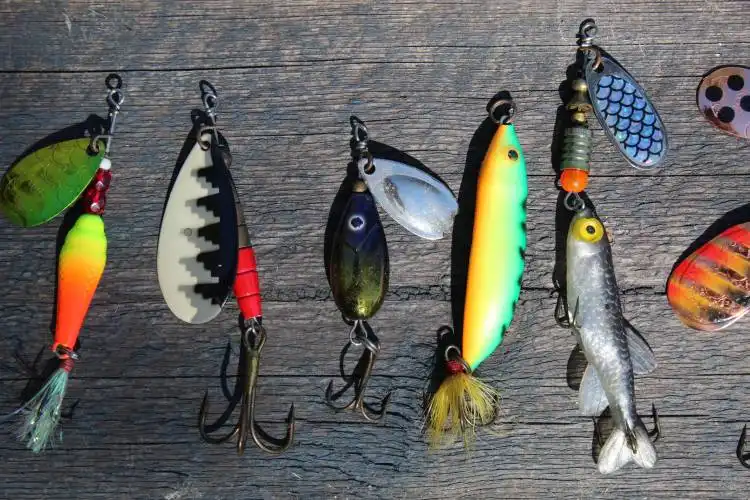Start a Fishing Charter Business
Harnessing the Allure: Make Money Doing What You Love!
| Updated


FISHING CHARTER BUSINESS
Imagine getting paid to spend your days out on the clear, open water, surrounded by the magnificence of nature and the thrill of the catch. That's the beauty of starting a Fishing Charter business, an enterprise that marries recreational activities with lucrative outcomes. In essence, a Fishing Charter business provides guided fishing trips for individuals or groups, sharing your knowledge and passion for angling. Now, who says you can't mix business with pleasure?
Jump to Business Plan
RELATED BUSINESS IDEAS
Browse ALL Hospitality & Leisure Ventures Business Ideas
Discover Your Perfect Domain
Unlock the door to your online success with our hand-picked selection of premium domain names. Whether you're starting a new venture or rebranding an existing one, the right domain can set the tone for your digital presence. Browse through our curated list, each with its unique potential to enhance your brand's visibility and credibility.
FISHING CHARTER MINI BUSINESS PLAN
This a quick reality check to help you identify the strengths and weaknesses of your business concept before you dive in.
Expected Percent Margin:
Gross Profit Margin: Typically, a well-managed fishing charter business can expect a gross profit margin of 20-50%.
Net Profit Margin: The business' net profit margin, after all expenses are taken into consideration, tends to fall between 10-20%.
Earnings Expectations:
All estimations are based on charging an average of $500 for a fishing charter that lasts 6 hours, with 1 trip each day.
- Daily Earnings: 1 trip x $500 = $500
- Weekly Earnings: 5 trips x $500 = $2,500 (Assuming operations 5 days per week)
- Monthly Earnings: $2,500 x 4 weeks = $10,000
- Annual Earnings: $10,000 x 12 months = $120,000
However, these numbers can significantly fluctuate depending upon the time of year and fish availability.
Actions to Hit These Numbers:
Improve the Fishing Boat:
Invest in a seaworthy, comfortable, and spacious fishing boat. Installing reliable navigation and fishing equipment can improve client satisfaction and safety.
Hire Experienced Crew:
A knowledgeable and friendly crew can enhance the overall experience, thereby attracting repeat customers.
Acquire Necessary Permits & Licenses:
Ensure you are compliant with all local and federal regulations regarding fishing charters.
Effective Marketing Strategies:
Use online advertising platforms, particularly those popular with outdoor enthusiasts, to promote your services. Partner with local tour operators or hotels to tap into their customer base.
Customer Service:
Deliver a memorable experience to your customers. This includes clean and well-equipped boats, a friendly crew, and, if possible, a token memento of their fishing experience to encourage them to return.
Seasonality and Species:
Plan your calendar around the local fishing seasons to provide the most rewarding adventures for your customers.
The above analysis provides a generalized idea on the expected earnings and actions needed to reach there. The actual numbers could vary based on the location, local regulations, and market conditions. Always consult with a business advisor for personalized advice.
NOT WHAT YOU HAD IN MIND? Here are more ideas



Browse ALL Hospitality & Leisure Ventures Business Ideas
Grab Your Business Website Name
Before you get caught up in the whirlwind of setting up your business, invest in a domain name. It's a small but significant step that lays the foundation for your brand and makes it easier for customers to find and trust you. Just like you wouldn't build a house without securing the land first, don't build a business without securing your domain name.
"Why? Can't that wait?" Here's why it shouldn't
Step 1: Determine if Starting a Fishing Charter Business is Right for You
Breakdown of Startup Expenses
When starting a fishing charter business, it is important to understand the startup costs that will be incurred. These costs can include the cost of the boat, the cost of any necessary licenses, the cost of fuel, the cost of any necessary equipment, and the cost of any necessary insurance. Additionally, it is important to consider the cost of any marketing materials or advertising that will be necessary to get the business off the ground.
Breakdown of Ongoing Expenses
In addition to the startup costs, it is important to understand the ongoing expenses that will be incurred. These expenses can include the cost of fuel, the cost of any necessary repairs or maintenance, the cost of any necessary licenses, and the cost of any necessary insurance. Additionally, it is important to consider the cost of any marketing materials or advertising that will be necessary to keep the business running.
Examples of Ways to Make Money
Once the startup and ongoing expenses have been determined, it is important to understand the ways in which the business can make money. This can include charging customers for fishing trips, selling merchandise related to the business, and offering additional services such as bait and tackle sales. Additionally, it is important to consider ways to increase the visibility of the business, such as through social media or local advertising.
Step 2: Name the Business
When it comes to naming a fishing charter business, it's important to come up with a name that is both memorable and relevant to the services you offer. A great way to start brainstorming is to think of words that are related to fishing, such as “angler”, “catch”, “hook”, “tide”, and “reel”. Additionally, you may want to consider incorporating your location into your business name, as this can help potential customers find your business more easily. Additionally, make sure to check with the local government to ensure that the name you choose is available and not already taken by another business.
Once you’ve narrowed down your list of potential names, it’s a good idea to do a quick online search to make sure that the name you’ve chosen is not already being used by another business. Additionally, you may want to consider running a trademark search to make sure that the name you’ve chosen is not already trademarked by another business.
Finally, you may want to consider running a domain search to make sure that the name you’ve chosen is available as a domain name. This can be a great way to make sure that potential customers can easily find your business online. Additionally, it’s a good idea to register your business name with the local government to ensure that no one else can use the same name as your business.
Step 3: Obtain Necessary Licenses and Permits
The third step in starting a fishing charter business is to obtain the necessary licenses and permits. Depending on the state, this may include a business license, a fishing license, and a boat registration. It is important to research the specific requirements for the state in which the business will be located. Additionally, it is important to ensure that the business is in compliance with all local and state laws. It is also important to consider any additional permits that may be necessary, such as a permit to fish in certain areas or a permit to serve alcoholic beverages on board. Furthermore, it is important to make sure that the boat meets all safety standards and is properly insured. Finally, it is important to make sure that all employees have the necessary certifications and training to operate the boat.
Step 4: Secure a Business Location
Once you have determined that starting a fishing charter business is the right endeavor for you, the next step is to secure a business location. This is an important step as it will determine the success of the business. It is important to find a location that will be convenient for customers and will provide a safe and comfortable environment for them. Additionally, it is important to make sure the location is in an area that will attract customers and will be easily accessible.
When looking for a business location, it is important to consider the cost of renting or purchasing the space. Additionally, it is important to consider the size of the space and whether it will be able to accommodate the number of customers you plan to serve. Furthermore, it is important to consider the local zoning laws and regulations to ensure that the business is in compliance. Finally, it is important to consider the amenities that will be available to customers, such as parking, restrooms, and other amenities.
Step 5: Purchase Necessary Equipment
When starting a fishing charter business, you will need to purchase the necessary equipment to get started. This includes boats, fishing rods, tackle, bait, and any other necessary items. You should also consider purchasing additional safety equipment such as life jackets, flares, and a first aid kit. Additionally, you may need to purchase a trailer to transport the boat, and a truck to tow the trailer. You should also consider purchasing a GPS system, fish finder, and other navigational equipment. Finally, you should also consider purchasing a radio or cellular phone to stay in contact with other boats and the shore. All of these items can be expensive, so it is important to research the best deals and shop around.
Step 6: Develop a Business Plan
A business plan is essential for any business, and a fishing charter business is no exception. It should include a detailed description of the services you plan to offer, your target market, your pricing structure, and your marketing plan. It should also include a financial plan, which should include a breakdown of startup expenses, ongoing expenses, and ways to make money. A business plan should also include a timeline for when you plan to launch your business and when you expect to reach certain milestones. Additionally, it should include a risk management plan to help you prepare for any potential issues that could arise. Finally, it should include a strategy for how you plan to grow your business over time.
Step 7: Market Your Business
Once you have all the necessary paperwork and permits in order, it's time to start marketing your business. There are a variety of ways to market a fishing charter business, including print media, digital media, and word of mouth. Print media includes flyers, brochures, and newspaper ads. Digital media includes social media, websites, and email campaigns. Word of mouth is one of the most effective forms of marketing, so make sure to ask your customers to spread the word about your business. Additionally, you can offer discounts and promotions to attract new customers. Finally, consider joining local fishing associations and attending local events to get your business name out there.
Step 8: Hire Employees
Hiring employees is a necessary step in starting a fishing charter business. Before hiring, it is important to research local labor laws and regulations and to create a job description that outlines the duties and responsibilities of the position. It is also important to create a hiring process that will allow you to select the best candidate for the job. This process should include an application, an interview, and a background check. Once the candidate is selected, it is important to create a contract that outlines the terms of employment and the expectations of the employee. Additionally, it is important to provide the employee with the necessary training and resources to ensure that they are successful in their role. Finally, it is important to create a system for evaluating employee performance and providing feedback. This will help ensure that the employee is meeting the expectations of the job and will help the business remain successful.
Step 9: Open Your Business
Opening your fishing charter business is the last step in the process. Before you open your doors, make sure you have all the necessary permits and licenses. You should also have a plan for marketing your business, such as creating a website, advertising in local newspapers, and networking with other fishing charter businesses. Additionally, you may want to consider joining a trade association or professional organization to help you stay informed on the latest industry trends. Once you have all the necessary paperwork in order, you can officially open your business and start taking customers out on fishing trips. Make sure to keep accurate records of your income and expenses, and be sure to follow all local and federal regulations for running a business. With hard work and dedication, you can make your fishing charter business a success.
EXPLORE MORE CATEGORIES
Browse ALL Business Idea Categories
TAKE THE NEXT STEPS










